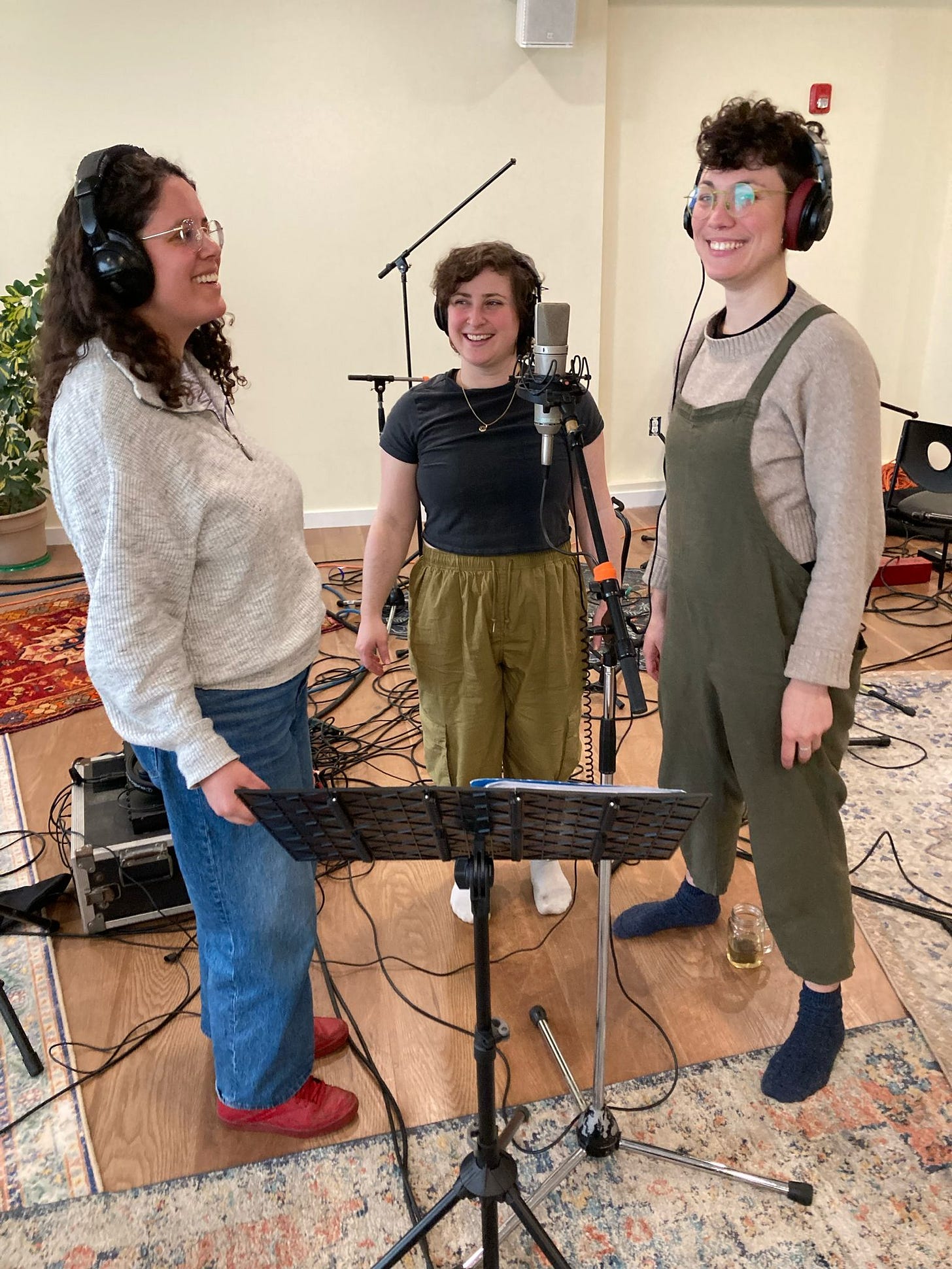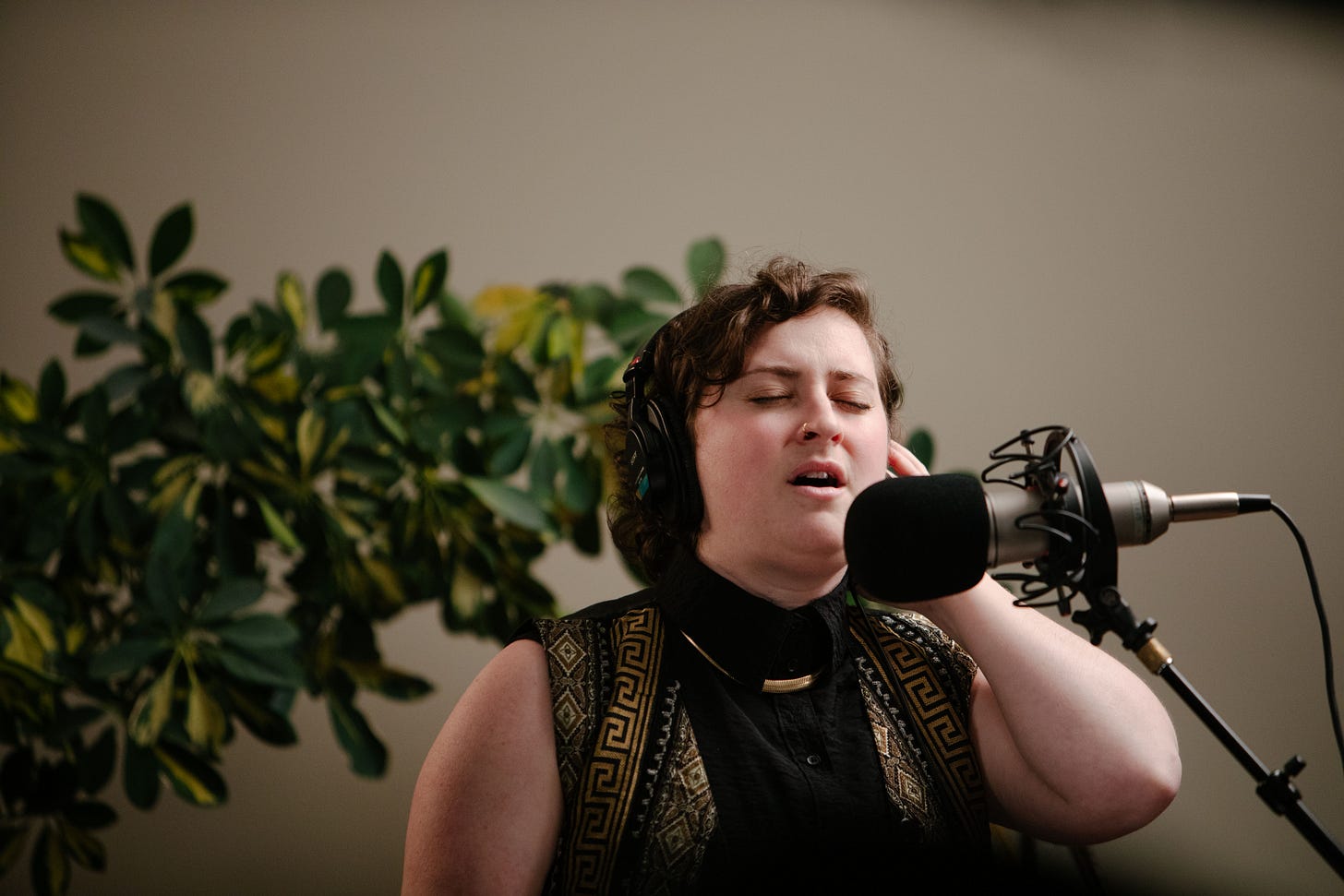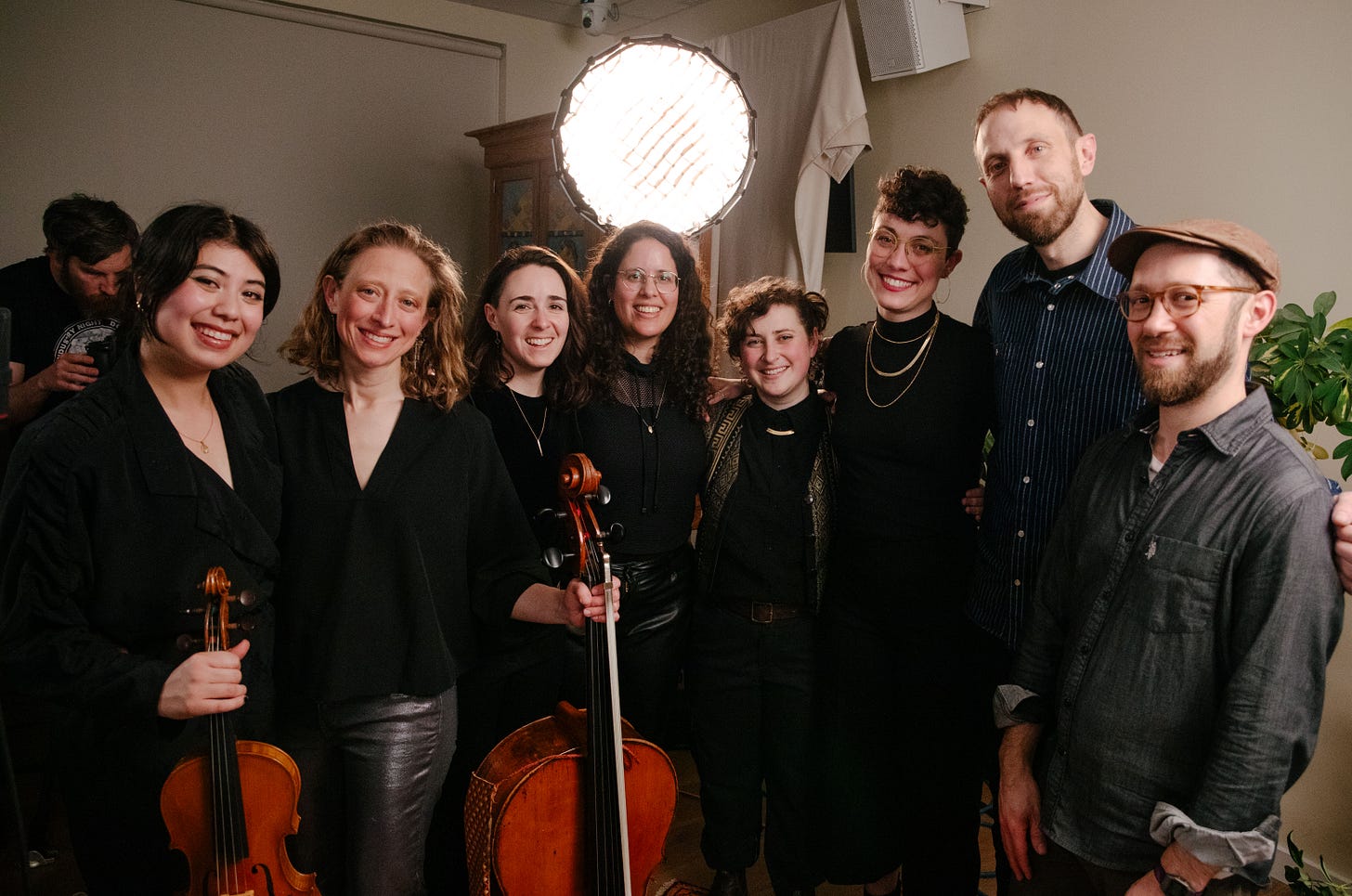Batya Levine's "Yivarechecha" endures an eclipse
The community song-leader's second release wants to heal amidst pain
On Monday, December 2, Batya Levine is releasing their second album of music titled “Yivarechecha,” named for the birkat kohanim or Priestly Blessing from the Tanakh. However, Levine recalled that it wasn't always obvious their life would revolve around music.
Batya Levine was raised in the Modern Orthodox community in Teaneck, New Jersey with a childhood full of music and community values. “My parents both love music and my dad sells guitars for a living. So we really grew up in a very songful, soulful version of Judaism, where singing and music were an ever-present part of the fabric of our life,” recounted Levine. Parting ways with the community, Levine would begin exploring other facets of Judaism and the queer community during college.
“Growing up, I was not at all known for my musicality or singing. I was just a person who loved singing,” said Levine. A series of fateful experiences around this time would center music in Levine's life. Two examples are their exploration of Renewal Judaism and participation in programming at the Isabella Freedman Jewish Retreat Center. Not hesitating to admit their shy disposition, Levine remembers realizing music could be a conduit to share their voice in the Jewish community.
Levine gives a lot of credit early in their musical awakening to what they call “one-liner” songs. Musicians like Rabbis Shir Meira Feit and Shefa Gold, had many songs whose melodies would ecstatically hang out on one word or line of liturgy. Melismatic songs like these have a refreshing ease of access to people looking to explore music or prayer. "Growing up, there was no model exactly. And then being in these spaces, I realized one-liner songs have a bar to entry which was easier to reach. It wasn't that I decided that I was gonna write music, but I started, you know, trying out leading one song — even if I was still so nervous in the song circle.”
Community beginnings, perpetuating community
Nervous or not, these experiences started Levine off on a musical journey. They credit the support of a community of peers who were on a similar path of exploration. Friends and collaborators like Aly Halpert, Anat Hochberg, Molly Bajgot, and Sol Weiss among others provided a safe and passionate space for feedback and growth. (Check out this group album, Levine and many of these collaborators co-produced in 2022!)
Levine would go on to co-found the organization Let My People Sing! and also involve themself in the first cohort of the Rising Song Institute. They recorded their first album, “Karov,” on March 1, 2020 just before the COVID pandemic swept the United States. Much to their surprise, Levine noticed their first album reaching far beyond their friends and acquaintances. “It was pretty significant to watch it bloom and reach people beyond my immediate community,” said Levine.

Explaining their musical ethos, Levine conjures up an allegorical shtetl. Contrary to what one might assume, however, they don't see themself following the tradition of klezmorim. "The lineage that I feel a part of in this sort of metaphor is the old woman traveling around all the houses, singing to the people who are sick — song as medicine and song as a tool for healing and moving energy and davening. That's the part of music and song that I feel I really resonate with,” said Levine. They also see traces of tkhines in their music. Tkhines were Yiddish devotionals traditionally written for women who often weren't given the opportunity to learn the traditional prayer language of Hebrew.
A project to eclipse itself
They would begin work on “Yivarechecha” in 2023, working with Yoshie Fruchter as their co-producer. The recording session for the album — which Levine recalls as a beautifully emotional event — took place around the North American total solar eclipse in April 2024, which also fell around Rosh Chodesh Nisan. Much of what the album means they still believe is a mystery, leaving room for interpretation following the album's release. They hope, however, that the album can be healing in the painful disruptive times many are living through where, as Levine put it, “internal tearing is mirroring external tearing.”
While certainly mysterious at times, Levine's lyricism and melodies are refreshingly forthright and poetically intriguing, shining through above all in “Yivarechecha.” Much of the vocals in the voice-centered album have a tasteful bluesy intrigue, celebrating and building on a folk idiom common in contemporary American Jewish religious music. Between original lyrics and settings on well-known liturgy, Levine certainly demonstrates their knack both for creation and interpretation.
“I feel like I went through this journey, struggling with my faith about this album every step of the way,” said Levine. “It's a mystery to me what exactly this album is about, and I think we're gonna find out the more that people listen to it.” Levine emphasizes ultimately how the album was a community effort. “Creating art is such a vulnerable process and it feels like a group project” said Levine, after giving thanks to many collaborators: over 500 donors, their family's support, queer community and many more.
“Yivarechecha” will have two release concerts in January 2025. One on January 15 at Philadelphia's Germantown Jewish Center and another to be announced the following day in Brooklyn.




